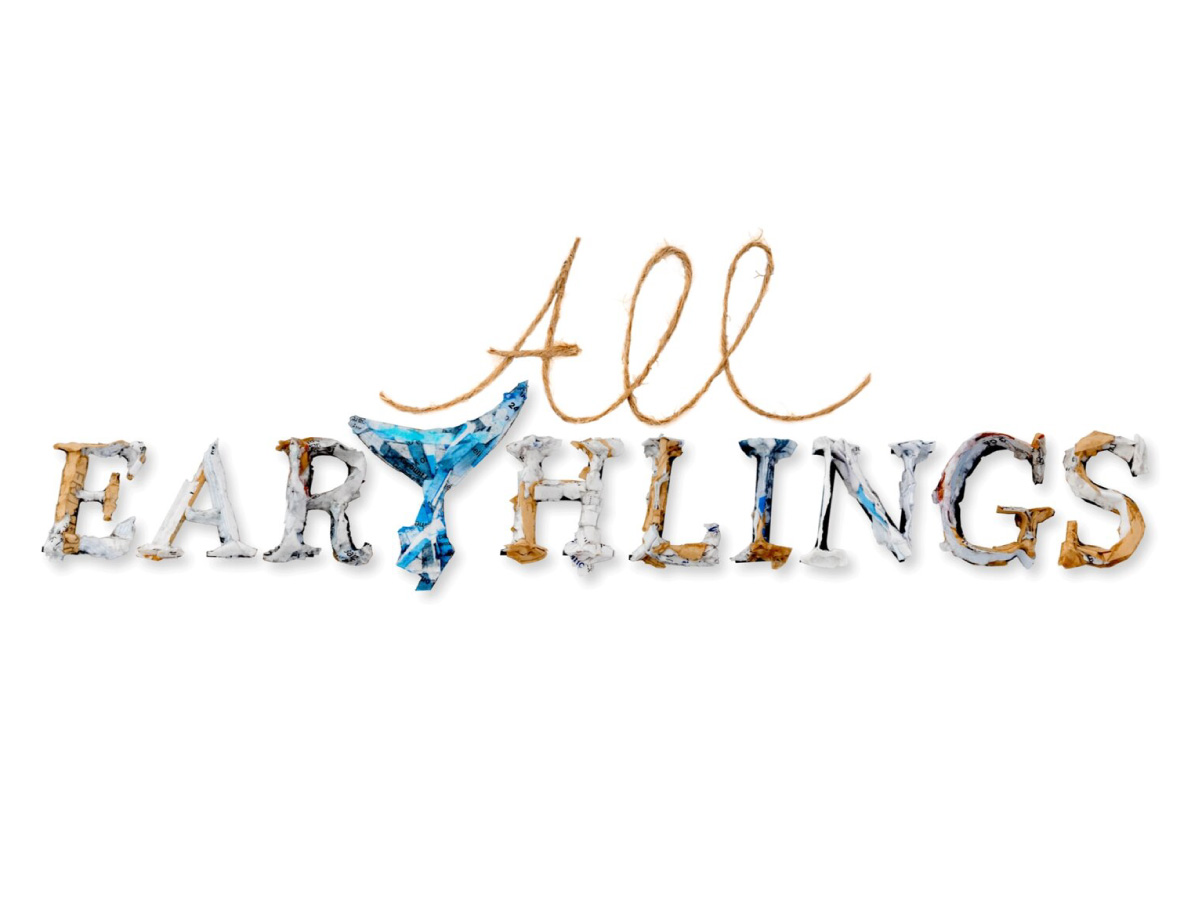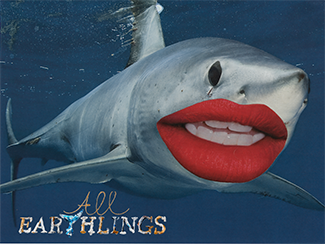All Earthlings: Fighting for Sharkless Cosmetics
June 11th, 2021
By: Annemarie Cutruzzola

Here at the Social Ventures Zone, we have many startups tackling environmental issues. From upcycling used tires to repurposing spent grains, these companies have no shortage of innovative solutions to address the multi-faceted and pressing concerns our environment is currently facing. Earlier this year, All Earthlings joined the Social Ventures Zone as part of our Winter 2021 Cohort.
All Earthlings aims to improve the environmental impact of the cosmetic industry, specifically by advocating against the use of shark-derived squalene in personal care products. Since their mission aligns with the "Life and Livelihoods" theme of this year's World Ocean's Day (external link) , we spoke to Founder Sarah Jay about her vision for All Earthlings, ocean conservation, and why we need to pay closer attention to the ingredients in our cosmetic products.
All Earthlings is dedicated to improving the environmental impacts of fashion, food, and beauty sectors. Their main initiative, Sharkless, strives to raise awareness about the widespread use of shark liver oil (squalene) in cosmetic products, and the harmful effects this has on many species and ecosystems.
“Pun intended, All Earthlings was formed very organically, by a group of experts with a shared passion for sustainability, conservation, beauty and design,” says Sarah Jay.
Jay and her team conducted the largest market study in the world on the use of shark squalene in cosmetics, and it brought about several notable findings:
40% of cosmetic products tested indicate the presence of shark squalene in volumes up to 95%.
96% of cosmetic products containing shark squalene also indicate the presence of plant squalene.
89% of cosmetic products containing shark squalene identify as “Cruelty-Free” or “Vegan"
They have concluded that brands are “a major contributor to the rapid decline of shark populations” and in some cases are misleading consumers with false labelling. In addition to raising awareness of this issue, All Earthling provides third-party testing for brands to confirm the origin of the squalene in their products.
The “all” in All Earthlings is purposeful. While the clean beauty movement often focuses on how non-toxic products benefit human health, Jay wants to approach the issue from a standpoint that considers the wellbeing of all living things and their habitats. “It’s important to acknowledge the holistic nature of sustainability in our identity and the interconnectedness of life on Earth,” she says.
Jay was also involved in the creation of the documentary "Toxic Beauty (external link) ," which delves into the harmful toxins found in cosmetic and personal care products and the impact they can have on human health. The documentary recently took home two Canadian Screen Awards, for Best Writing and Best Direction in the Documentary category.

As her team helped her establish All Earthlings, Jay is especially proud of their logo, which was made by hand and photographed out of paper waste and some old jute twine. And the story behind their eye-catching shark aesthetics? "Our imagery which was collaged by hand out of old fashion magazines and National Geographics, by artist and Earthling, Louise Donegan," says Jay.
Saving Sharks & Oceans
As we reflect on the importance of protecting our oceans and the ecosystems within it, Jay provided us with some insights on why this is a crucial issue with many potential repercussions.
Q: Why is ocean conservation so essential?
A: Oceans cover 71% of our planet’s surface and make up 95% of all the space available to life. They are a life-support system for Earth and a global commons that provide us with goods and services, from the food we eat to the oxygen we breathe. The oceans also regulate the global climate; they mediate temperature and drive the weather, determining rainfall, droughts, and floods.
Q: How will All Earthlings' mission to protect sharks also benefit other life in the ocean?
A: As apex predators, sharks regulate the abundance, spatial distribution and diversity of all plant and animal life beneath them. The loss of sharks causes the suffocating overgrowth of algae blooms, coral reef collapse, and the loss of biodiversity, ultimately contributing to ocean acidification and trophic cascade. In every sense, healthy shark populations uphold the health of our oceans.
Q: What about plastic waste?
A: The climate crisis is time sensitive, and we cannot afford to go halfway, addressing either ingredients or plastic. We have to rethink both. Research has shown that units of plastic now outnumber plankton populations in surface water 6:1. Microplastics are present in our organs, in placentas, and in areas of the world as remote as Mount Everest. But nowhere are microplastics more abundant than in our oceans. Considering sustainability holistically and redesigning our products, our systems, our lives and our world is the solution.
What Can We Do?
As she continues her work on All Earthlings, Jay also points out the importance of change being implemented on a larger scale: “Voluntary audit or certification processes, like our Sharkless Pledge, are important in the interim, but governments must take action to better regulate the cosmetic industry.”
So while continuing to urge cosmetic brands to lessen their impact on oceans, what can the average consumer do to take action? “Write to your MP demanding both transparency and better safety regulation in the cosmetic industry,” says Jay. “2030 is an awfully long way away for Canada’s single-use plastic ban.” She also encourages consumers to carefully read the labels on their cosmetics and ask brands if they know where the squalene in their products comes from. For more information, you can visit All Earthling’s website (external link) , and follow them on Instagram (external link) and Twitter (external link) .
“Ensure Sharkless products, not a Sharkless world.”